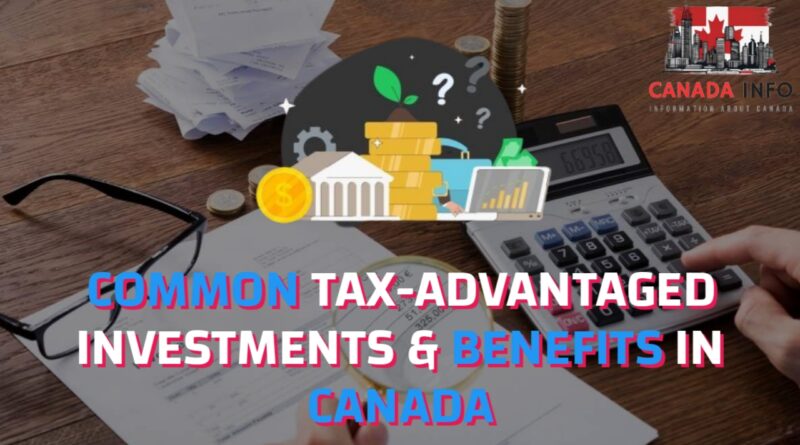New Tax Policies and Their Impact on Individuals and Corporations in Canada
Corporate Tax Rules in Canada:
In Canada, corporations are subject to taxation on their worldwide income. The corporate tax system in Canada is primarily governed by the federal government, although provinces and territories also have their own corporate tax rates and rules.
The federal corporate tax rate in Canada is applied to taxable income earned by corporations operating in Canada. As of 2024, the federal corporate tax rate is 15%. However, this rate may vary for certain types of corporations and industries, and there are also additional taxes and surtaxes that may apply.
In addition to federal corporate taxes, corporations must also consider provincial or territorial taxes, which vary depending on the jurisdiction. Each province and territory sets its own corporate tax rates and rules, which may differ from the federal rates.
Canadian corporations are required to file annual tax returns with the Canada Revenue Agency (CRA) and comply with various tax laws and regulations. This includes reporting income, deductions, credits, and other relevant financial information.
Recent Changes or Developments in the Canadian Taxation System:
The Canadian taxation system undergoes periodic changes and updates to adapt to evolving economic conditions and government priorities. Some recent changes or developments in the Canadian taxation system include:
- Digital Services Tax:
Canada has introduced measures to tax digital services provided by foreign companies. This aims to ensure that digital businesses operating in Canada contribute to the tax base fairly. - Enhanced Support for Small Businesses:
The government has implemented measures to provide additional support and tax relief for small businesses, including changes to tax credits and deductions. - Climate-Related Taxes and Incentives:
There has been a focus on implementing taxes and incentives to address climate change and promote environmentally sustainable practices. This includes measures such as carbon pricing and tax credits for green investments. - International Taxation Changes:
Canada has been working to update its international tax rules to address issues such as base erosion and profit shifting (BEPS) and to ensure compliance with international standards and agreements. - Personal Income Tax Changes:
Changes to personal income tax rates, brackets, and credits may also occur periodically to reflect changes in economic conditions and government priorities.
Taxation of Individuals in Canada:
Individuals in Canada are subject to taxation on their worldwide income, including income earned from employment, investments, and other sources. The taxation of individuals in Canada is based on a progressive tax system, where tax rates increase as income levels rise.
As of 2024, the federal personal income tax rates in Canada range from 15% to 33%, depending on the amount of taxable income. In addition to federal taxes, individuals must also pay provincial or territorial taxes, which vary by jurisdiction.
Canada offers various tax credits, deductions, and benefits to individuals to help reduce their tax burden. These may include credits for expenses such as childcare, education, and medical expenses, as well as deductions for contributions to retirement savings plans and other investments.
Individuals are required to file annual tax returns with the CRA and report their income, deductions, credits, and other relevant financial information. The deadline for filing tax returns in Canada is typically April 30th, although this may be extended if the 30th falls on a weekend or holiday.
Changes to Income Tax in Canada for 2024:
As of 2024, there have been several changes to income tax in Canada:
- Tax Rate Adjustments:
The federal government may adjust tax rates and brackets for individuals and corporations to reflect changes in economic conditions and government priorities. - New Tax Credits or Deductions:
New tax credits or deductions may be introduced to provide additional support or incentives for certain activities or investments. - Updates to Tax Laws and Regulations:
Changes to tax laws and regulations may occur to address emerging issues or to align with international standards and agreements. - Enhancements to Tax Administration:
The CRA may implement enhancements to tax administration processes and systems to improve efficiency and compliance. - Environmental and Climate-Related Taxes:
There may be changes or updates to environmental and climate-related taxes and incentives to promote sustainability and address climate change.
Impact of Recent Changes in Canadian Taxation System on Businesses
Canada’s taxation landscape has witnessed significant changes in recent years, with implications for businesses of all sizes. From alterations to corporate tax rules to adjustments in personal income tax rates, these changes have profound effects on how businesses operate, invest, and plan for the future.
Corporate Taxation:
One of the pivotal aspects affecting businesses is the corporate tax regime. Recent adjustments in corporate tax rates and rules have influenced the decisions and strategies of corporations operating in Canada. For instance, the reduction or increase in federal and provincial corporate tax rates directly impacts a company’s bottom line and its competitiveness in the market.
Additionally, changes in tax incentives, credits, and deductions can influence business decisions regarding investment, expansion, and resource allocation. Businesses may reevaluate their capital expenditure plans, research and development initiatives, and hiring strategies in response to alterations in tax policies.
Compliance and Administration:
Changes in tax laws and regulations also affect the compliance burden on businesses. With each modification, companies must ensure they understand and adhere to the updated requirements to avoid penalties or legal complications. This often entails dedicating resources to stay informed about changes, updating internal processes and systems, and potentially seeking professional tax advice to navigate complexities.
Moreover, adjustments in tax administration processes, such as reporting requirements or audit procedures, can impact the administrative workload for businesses. Streamlined or more efficient tax administration can alleviate administrative burdens, while increased complexity may lead to higher compliance costs.
Investment and Innovation:
The taxation system plays a crucial role in shaping investment decisions and fostering innovation within businesses. Tax incentives for research and development (R&D), capital investments, and innovation activities influence companies’ willingness to invest in new technologies, processes, and products.
Changes in these incentives can either incentivize or disincentivize investment and innovation. For example, reductions in tax credits for R&D activities may deter companies from allocating resources to research initiatives, potentially hampering long-term competitiveness and growth prospects.
Market Competitiveness:
The overall competitiveness of Canadian businesses can be influenced by the taxation environment. Corporate tax rates, in particular, play a significant role in determining Canada’s attractiveness as a destination for investment and business expansion.
High corporate tax rates relative to other jurisdictions may deter foreign investment and could lead to capital flight. Conversely, competitive tax rates can attract foreign direct investment, stimulate economic growth, and enhance the international competitiveness of Canadian businesses.
Conclusion:
In conclusion, recent changes in the Canadian taxation system have multifaceted implications for businesses. From influencing investment decisions and innovation to shaping market competitiveness and compliance requirements, businesses must carefully assess and adapt to the evolving tax landscape. Proactive tax planning, strategic decision-making, and staying informed about legislative changes are essential for businesses to navigate the complexities and seize opportunities in the ever-changing tax environment.
Overall, changes to income tax in Canada for 2024 aim to ensure a fair and efficient tax system that supports economic growth and fiscal sustainability while addressing emerging challenges and priorities.

